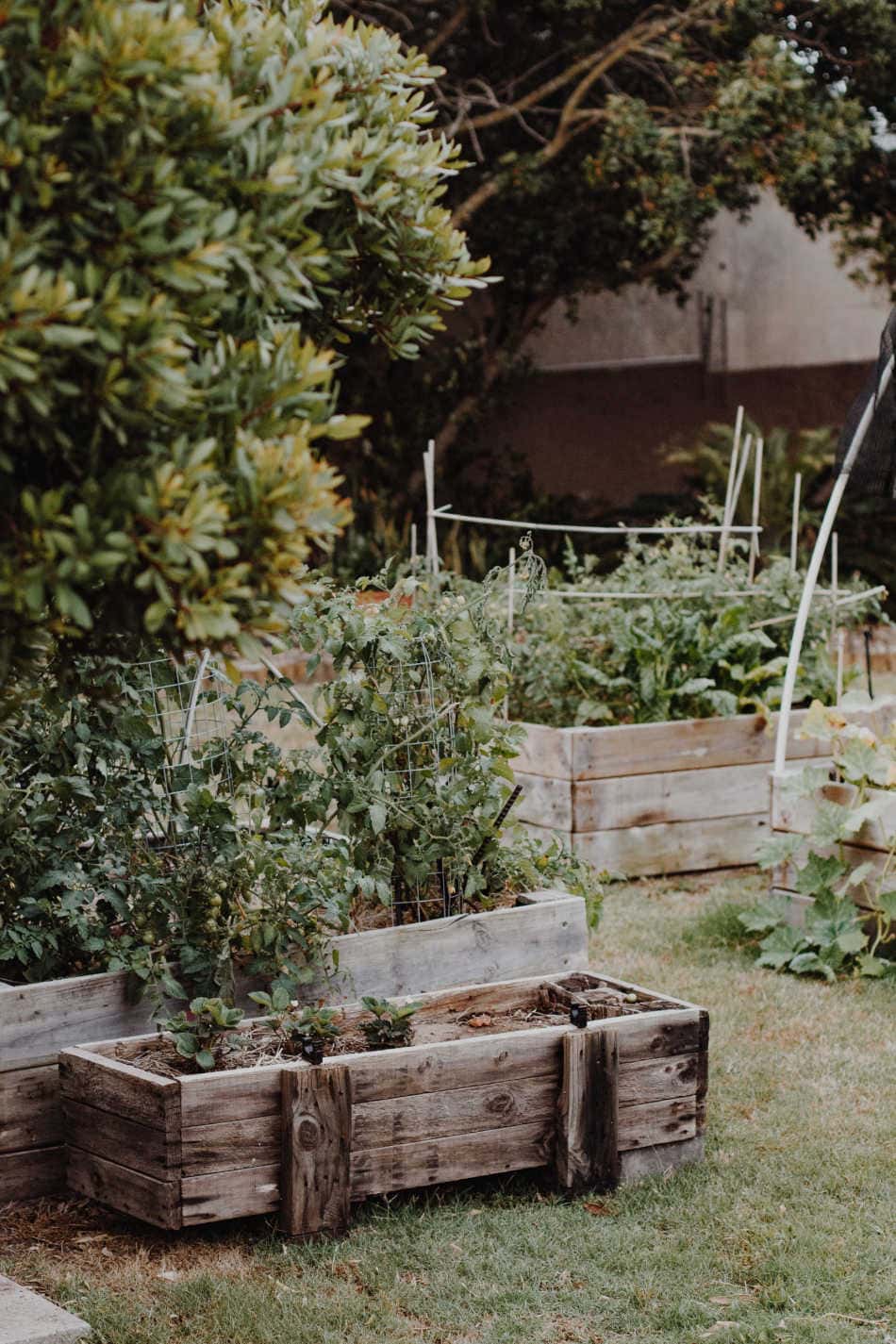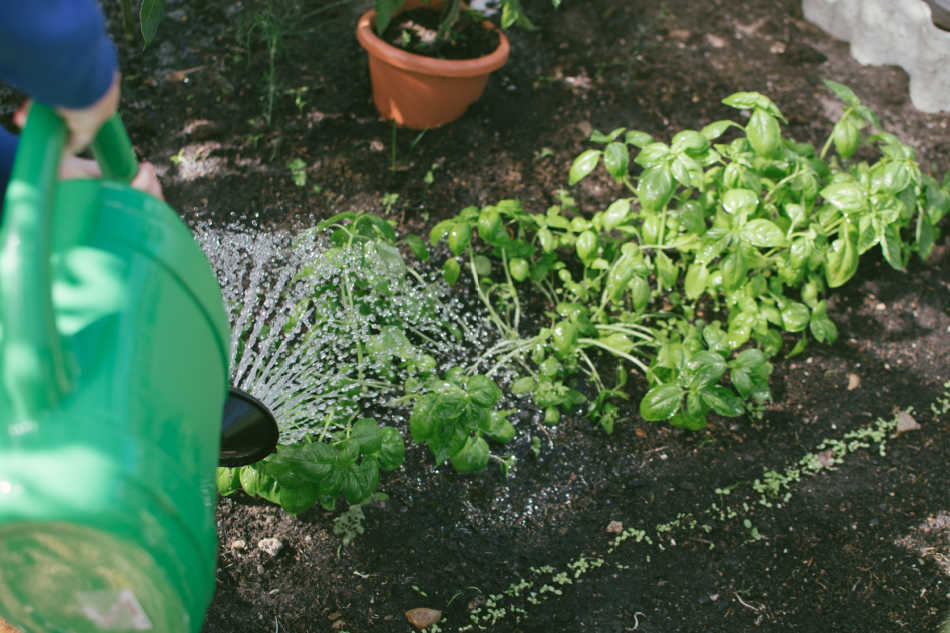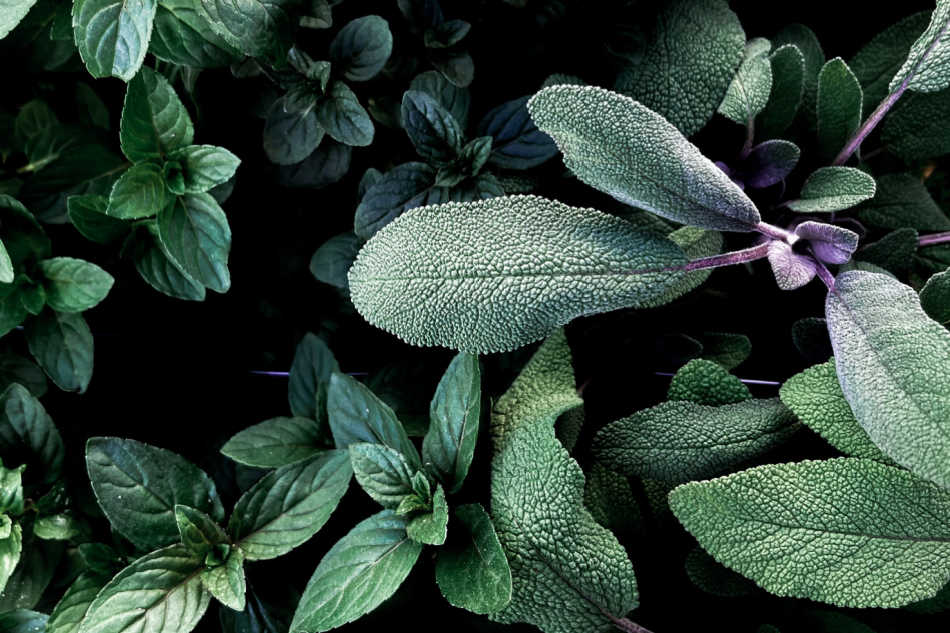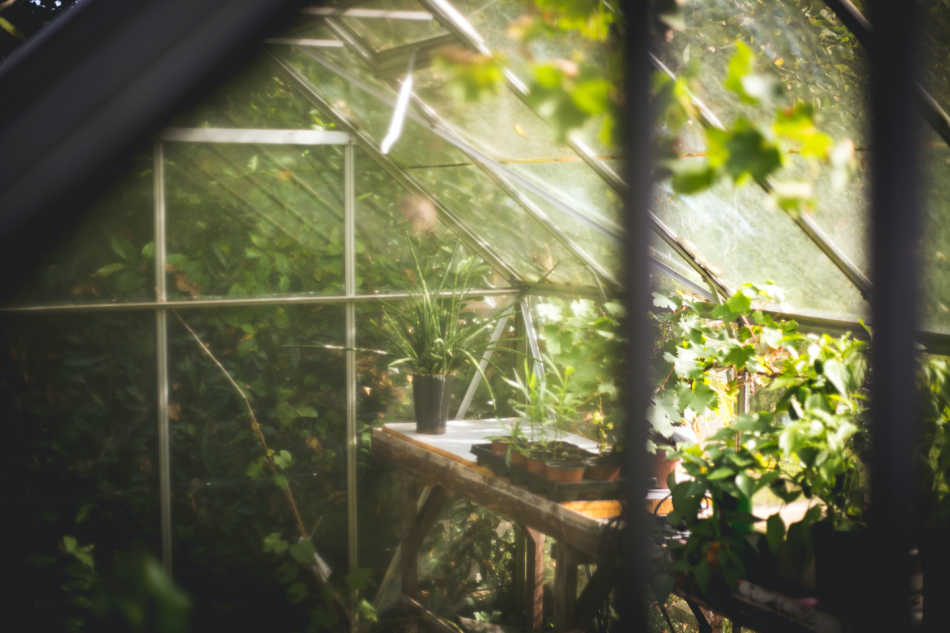
Guest post by GardnersPath.com
There’s a chill in the air, and the leaves are starting to turn yellow and red. It can only mean one thing: winter is coming. This means it’s time for gardeners to start preparing our herb gardens for the cold days ahead.
This article will discuss things you can do before winter sets in to support plant survival over the cold days ahead. We will also cover how to care for certain plants that aren’t cold hardy and won’t make it through the winter without some extra care.
The first step is to determine your USDA growing zone and check the cold-hardiness ratings for your plants. Some perennial herbs are cold-hardy and can live in harsh conditions with little protection, while fragile perennials may not be able to survive the first hard frost.
Tips To Winter-Proof Your Herb Garden

- Don’t fertilize
Never fertilize your herbs after August. Fertilizing plants late in the season encourages new growth, which is more susceptible to frost damage.
- Cut back
Cut back annual herbs after they flower. This includes basil, cilantro, and dill. Perennial herbs can be cut back by about one-third.
- Weed
Weeding is also important in the fall. Weeds compete with your plants for water and nutrients, making them more susceptible to stress and damage from the cold weather.
- Clean up
Clean up any dead leaves or debris that might be lying around. This will help prevent pests and diseases from overwintering in your garden and impacting your plants come spring.
- Mulch
Mulching is one of the best things you can do to protect your plants from the cold. Mulch insulates the soil and helps prevent it from freezing and thawing, which can damage plant roots.
You can use organic materials like straw, leaves, or bark chips for mulch. Apply a layer of mulch that is two to four inches thick.
- Water
Water your plants well before the first frost. Dry soil is more likely to crack and damage plant roots when it freezes.
Water also acts as an insulator and can regulate the temperature of the soil, protecting your plants.
- Cover up
If you live in an area with severe winters, you may want to consider covering your plants with a row cover or burlap. Be sure to remove the coverings on sunny days, so your plants don’t overheat.
Herbs that are cold hardy and can survive the winter with little protection include rosemary, thyme, oregano, mint, and sage.
If you live in an area with harsh winters, it’s a good idea to plant these herbs in a raised bed or container so you can cover them during particularly severe storms.
Perennial herbs that are not cold hardy and will need some extra care to survive the winter include lemon verbena, ginger, and eucalyptus. Even a light frost can damage these plants, so it’s important to take measures to protect them from the cold weather.
You can overwinter these plants indoors by potting them up and bringing them inside before the first frost. Or, you can cover them with a row cover or burlap on particularly cold nights.
- What if the ground freezes?
If the ground freezes solid, it’s important not to let it thaw too quickly. Sudden temperature changes can damage plant roots. If you need to thaw the ground, you can do so slowly by covering it with a tarp or blanket.
How to Bring Your Less Cold-Hardy Herbs Indoors Safely

It’s a good idea to bring the less cold-hardy herbs indoors for the winter. Here’s how to do it safely so as not to shock your plants.
- Inspect and Transplant
Before you move any plants inside, check them completely for bugs. Wash off the leaves with water from a hose to remove any insects you see. Then, anytime before the ground freezes, carefully dig up the herbs from your garden that you want to bring in.
- Pot
Choose a large container to hold each herb’s roots, as well as some space for expansion. Set the plant on top of a layer of potting mix at the bottom of the container.
Fill in any gaps around the roots with more potting mix. Firmly press down around the roots of your plants, leaving about an inch between the soil surface and the container’s rim.
Water your herbs after they’ve been transplanted into their new containers until all of the water has drained out the bottom of the pot.
- Acclimate
After you’ve transplanted your herbs into pots, it’s important to acclimate them to their new indoor environment.
Start by placing the pots in a shady spot where it’s bright, but they don’t get direct light. Gradually move them into more sun over the course of a week.
They might drop a few leaves and look unhappy, but they’ll eventually perk up. Then you can place them in a spot to get direct sun three to five hours a day. If you don’t have much sun during the winter, you can use grow lights or a set-up of fluorescent bulbs.
Final Thoughts

Now that you know how to winter-proof your herb garden, it’s time to implement those tips!
Be sure to mulch your plants, water them well before the first frost, and consider covering them with a row cover or burlap if you live in an area with severe winters. If you live in an area where the ground freezes solid, be sure not to let it thaw too quickly, as sudden temperature changes can damage plant roots.
You can also bring less cold-hardy herbs indoors by potting them up and bringing them inside before the first frost. Inspect and transplant any garden herbs before the ground freezes solid to bring inside.
With a little bit of preparation, you can ensure that your herb garden survives winter intact and is ready for blooming come springtime!